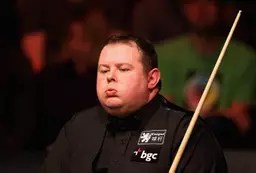John Higgins has been unequivocal in his views about Stephen Lee’s potential return to professional snooker now that Lee’s 12-year ban has expired.
Lee was banned back in 2013 (the sanction was backdated to October 2012) after being found guilty of influencing the outcome of seven matches played between 2008 and 2009. His ban concluded in October 2024, making him eligible (at least in principle) to resume competition. But his path back is not entirely clear—among other obstacles, Lee is reported to still owe substantial legal fees to the governing body (around £125,000)

When asked whether Lee should be allowed to return, Higgins gave a broadly welcoming response:
“If he serves his ban and decides to come back we will welcome him back with open arms. What a player he was. I’d have no problem, none at all.”
Higgins’ support is grounded in a sense of fairness and respect for Lee’s past contributions: he does *not* appear to be advocating blind forgiveness, but rather an open-handed stance once the punishment has been served.
At the same time, Higgins has acknowledged the practical and moral complexities involved. He has pointed out in commentary that the snooker community (players, fans, and administrators alike) will observe closely, and that integrity must remain paramount in the sport.
Although Higgins’ words are generous, he also implicitly recognizes that a full return for Lee is not guaranteed. Issues such as the outstanding fees to the WPBSA, the erasure of previous ranking points (meaning Lee would have to re-qualify via Q-School), and questions about match fitness all remain real obstacles.

Lee himself has expressed uncertainty. He has described the question of a comeback as one he’s asked “weekly, daily, minutely,” and indicated that while he believes he is still capable of playing, his decision is not firm.
Higgins’ position aligns with responses from other leading figures in snooker. Ronnie O’Sullivan, for example, has also voiced support, acknowledging Lee’s instrumental cueing abilities while admitting he is unsure how far Lee might climb in today’s competitive environment. Similarly, others have emphasized that Lee should “do the time” and pay his debts before any full reinstatement is considered.
In short: John Higgins seems to be saying that if Stephen Lee has genuinely served his ban and is ready to return on fair terms, he deserves the chance, and will “be welcomed back with open arms.” But Higgins’ support is tempered by realism—there are financial, reputational, and procedural barriers that Lee must still clear. The door, in Higgins’ view, is open—but not unconditionally so.














